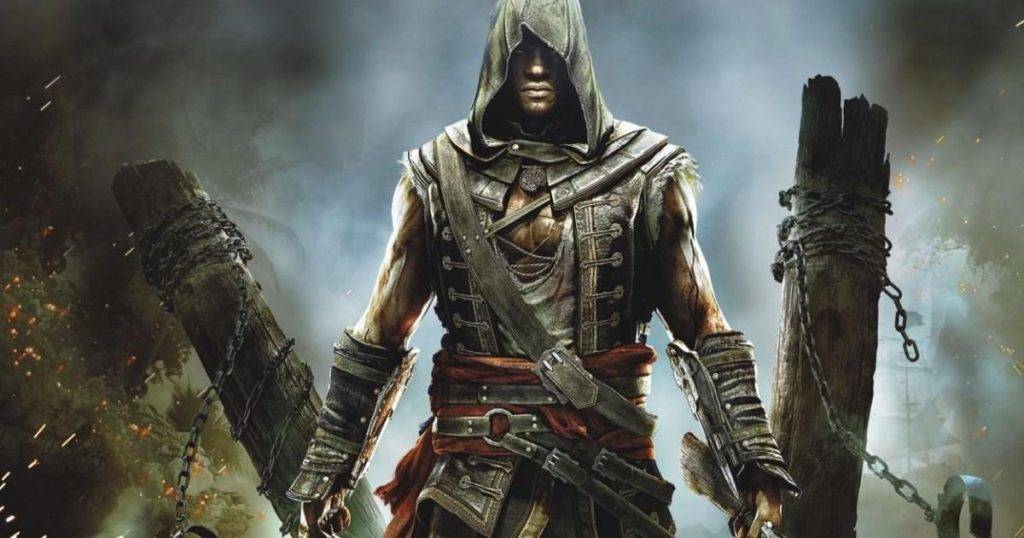Cliff Notes – Assassin’s Creed game cancelled due to US ‘political climate’ claims report
- Ubisoft reportedly cancelled a new Assassin’s Creed title featuring a former slave combating the Ku Klux Klan, citing concerns over the unstable US political climate.
- The decision follows backlash from the previous title, Assassin’s Creed Shadows, which featured the historical character Yasuke, raising questions about the company’s willingness to tackle controversial subjects.
- Despite previous successes with titles addressing slavery, Ubisoft appears to be retreating from challenging content, influenced by perceived public backlash and its own financial uncertainties.
Assassin’s Creed game cancelled due to US ‘political climate’ claims report
Assassin’s Creed Freedom Cry didn’t cause any controversy in 2013.
A new Assassin’s Creed title featuring a former slave fighting the Ku Klux Klan has reportedly been canned because of concerns US politics are ‘too unstable’.
The internet is a very angry place and if you were to judge by the amount of complaints and petitions levelled against Assassin’s Creed Shadows last year, you would assume that it had been a massive flop. But it wasn’t, it actually did extremely well on account of… being a good game.
A certain number of people got upset that one of the two playable characters was African samurai Yasuke, who, unlike most Assassin’s Creed characters, was an actual historical character. There was also some very vague complaints about general historical accuracy, all of which got Ubisoft good and spooked in the lead up to the game’s release.
What affect the game’s controversy, and subsequent success, will have on future titles is impossible to say but according to a new report it has already been responsible for the cancellation of a title last year, that would’ve involved a former slave fighting the Ku Klux Klan in the US Deep South.
The game would’ve been set in what’s called the Reconstruction era, which took place directly after The American Civil War, and lasted from 1865 to 1877. That’s a few years after the Quentin Tarantino movie Django Unchained, which was likely a major influence on the concept.
According to Stephen Totilo’s Game File, the unnamed protagonist would have been recruited by the Assassins to fight the emergence of the Ku Klux Klan ‘among other things’.
There are no other details about the game, and it’s unclear exactly how far it got, but the developers that leaked the information of its existence blame Ubisoft for ‘bowing to controversy’.
User Management
Supposedly, upper management in Paris cancelled the game because of the backlash over Yasuke and ‘concern that the political climate in the United States was becoming increasingly tense.’
‘Too political in a country too unstable, to make it short’, one source is quoted as saying.
‘I was terribly disappointed but not surprised by leadership,’ said another. ‘They are making more and more decisions to maintain the political ‘status quo’ and take no stand, no risk, even creative.’
Ubisoft has frequently been criticised for insisting that their games are ‘not political’, despite their content suggesting otherwise, but that’s usually been restricted to the Tom Clancy and Far Cry games.
Despite the various historical settings, and their obvious pitfalls, Assassin’s Creed has been relatively controversy free. Multiple games have already focused on the slave trade, including spin-offs Assassin’s Creed 3: Liberation and Assassin’s Creed Freedom Cry, which was originally DLC for Black Flag, before subsequently being released as a standalone title.
Liberation’s protagonist was mixed-race female assassin Aveline de Grandpré, while Freedom Cry starred former slave Adéwalé, fighting to break up the slave trade in the West Indies.
In that context, and assuming the information from Game File is correct, it seems as if Ubisoft’s willingness to tackle difficult subjects has lessened, a situation no doubt exacerbated by the company’s precarious financial position over the last few years.
The fact that Assassin’s Creed Shadows did prove a success – which Ubisoft didn’t know when the Restoration era game was supposedly cancelled – suggests that, as usual, those complaining are only a loud minority.
So, it’s sad to see a publisher shying away from challenging content because of a perceived backlash that, in one example at least, never actually happened.
Adéwalé wouldn’t have liked the Klan either (Ubisoft)


